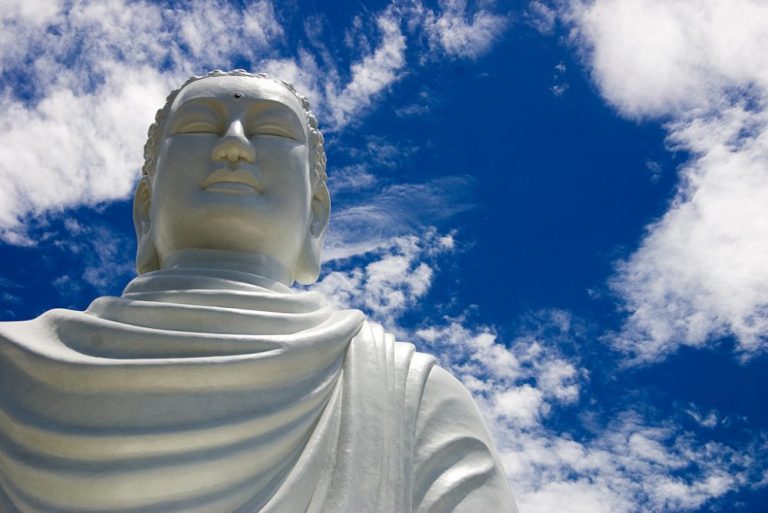“Even if the sun rises in the west, the way of the bodhisattva is the same.”
–Suzuki Roshi
Before my wife and I went to bed last Tuesday, Hillary Rodham Clinton was set to win an historic election by a landslide. The next morning, when we woke up, the United States had—against all rational expectation—elected a racist, nativist, fear-mongering, misogynistic real-estate-mogul-turned-reality-TV-star to what is still probably the most powerful political office on earth. A man who doesn’t even have the discipline to read a teleprompter will now hold the codes to our nuclear arsenal.
Leaving aside for the moment what could possibly have led to so improbable an event, it is worth asking: how should we, as practitioners of the dharma, think about this new reality?
My answer: nothing has changed.
Related: The Fifth Precept in the Age of Facebook and Trump
Of course, everything has changed. Trump’s presidency marks a dramatic shift in American democracy. It is arguably the first time that our nation has elected a man who shows nothing but disdain for truth. His campaign has been a departure from every conceivable form of civility.
But from a dharmic perspective nothing has changed. Because when we practice dharma, we practice the long view. We practice in a tradition that has seen our foremothers and forefathers through war, famine, drought, invasion after invasion, colonization, decolonization, military coups and military dictatorships, sickness and old age and death, and the inevitable ups and downs and horrors and beauties of uncountable lives over years and decades and centuries.
So when we practice dharma we know what we’re about. We don’t take refuge in the political machinations of giant democracies. We don’t take refuge in relationships. We don’t even take refuge in our own bodies. Why? Because these, as the Buddha said again and again, are unreliable refuges. They change. They shift. They tumble. They are, in the end and always, beyond our control.
So what do we take refuge in?
Well, the simple answer is that we take refuge in the Buddha, the dharma, and the sangha. We take refuge in the Buddha both as an inspirational figure and as our own awakened potential. We take refuge in the dharma as path to awakening and as reality itself. We take refuge in the sangha as our friends on the path and as all those who have come before us.
More to the point, though, we take refuge in our dharmic intentions. Our intention to wake up. And our unshakeable intention to benefit.
Related: Dialogue Across Difference
For me, that means I’ll continue. I’ll keep showing up at the inpatient psychiatric unit where I work. I’ll keep leading mindfulness workshops for helping professionals. I’ll keep signing petitions and writing letters and donating money to stop the Trump agenda and everything it stands for. I’ll keep sharing the dharma with those looking for true solace. And I’ll keep hitting the cushion, day after day after day, working with my own mind so I can work with the minds of others.
In short, I’ll do my best to ease suffering—my suffering and everyone’s suffering—one moment at a time, for as long as there is suffering to ease.
Thank you for subscribing to Tricycle! As a nonprofit, we depend on readers like you to keep Buddhist teachings and practices widely available.
